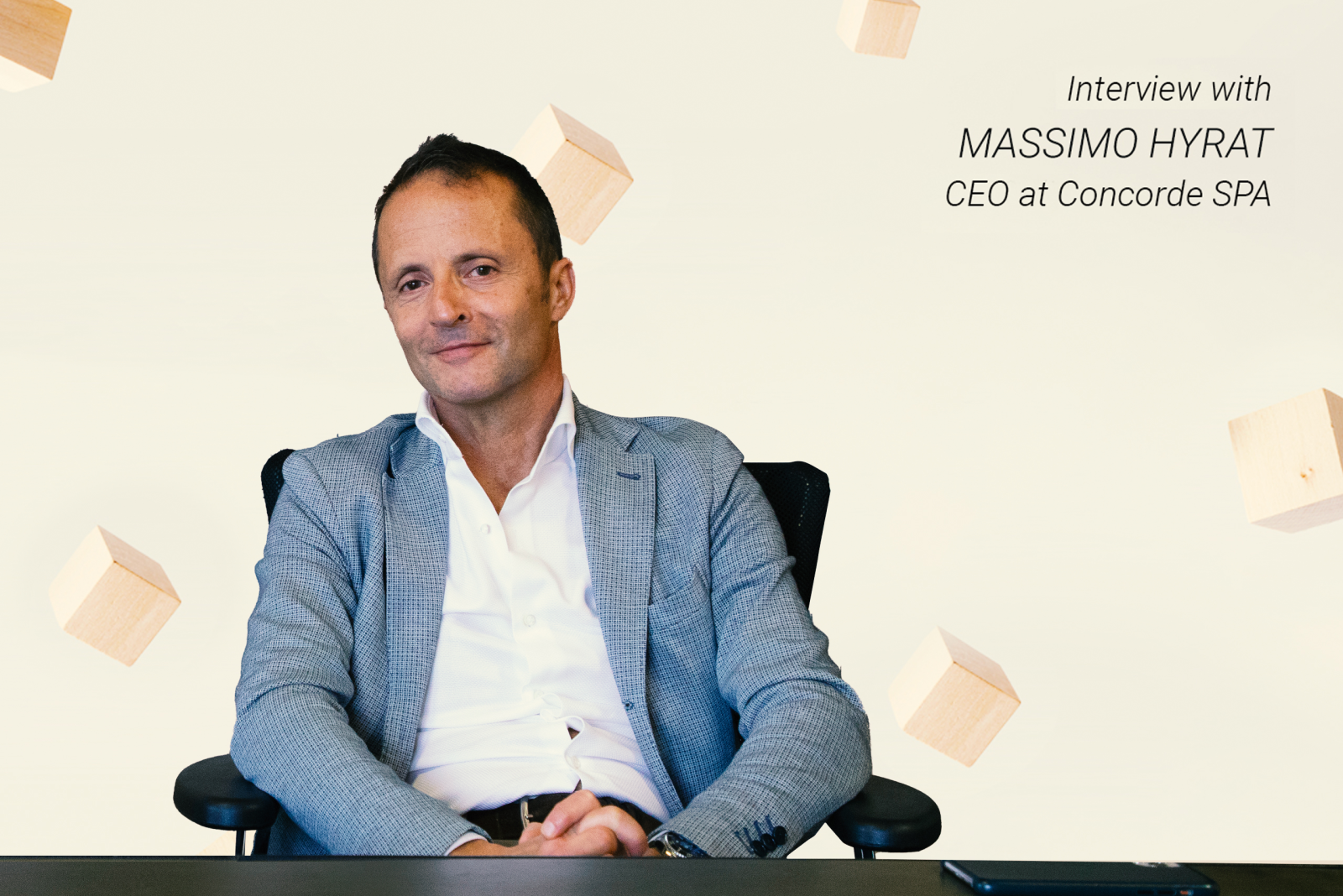
Concorde and the next challenges for 2021: interview to CEO Massimo Hyrat
Massimo Hyrat, born in 1965, is one of the founders of Concorde S.p.A., the Italian company located in Bologna that has been dealing with smart distribution since 1991. Also known for his collaboration with Mediaset for the launch of digital terrestrial in our territory, Massimo was at the forefront of the evolution of Concorde S.p.A., which represents today a real point of reference in the value-added distribution.
Dear Massimo, what does it mean to distribute the technology in 2020?
At the time of Motorola’s launch, mobile telephony in Italy was still at the beginning and, despite the distribution chain being populated by numerous players, Concorde managed to win a generous percentage of the market, reaching 58% of market share when the price of a single cell phone was around four million lire.
Today, the scenario has changed radically: it is fundamental to bet on the brands of the future, in a market where innovations create trends sometimes unexpected. Consumer habits have also changed: technology is becoming more and more affordable for everyone, proving to be easier to use and capable of bringing benefits and improvements to users’ lives in terms of convenience and time savings.
In your opinion, what are Concorde’s strengths?
Focus, integrated vision capacity, verticalized management and organization are undoubtedly our strengths.
Our company has always had qualified professionals and commercial agents who know the territory perfectly, as well as a high level of know-how acquired over the years, that allows us to affect the market in a timely and widespread manner.
In Concorde it is possible to find a reliable, coordinated and solid partner: we place ourselves as collaborators available to the vendor, with the aim of providing concrete support to all the needs that emerge from the comparison. Based on these needs, we provide different types of interventions, customizing the service with turnkey proposals, online and offline marketing and after-sales activities.
Our secret is to never lose the sight of the customer’s objectives, making the algorithm work on the appeal of the brand, the user’s spending power, the quality and promotion of the product within the chosen market, the weight of the distribution channel.
What was the apparently most difficult project?
Probably, Concorde has faced a rather peculiar situation when launching Realme, a completely unknown mobile phone brand in an already saturated market. Realme has been brought to the attention of users thanks to an offline marketing strategy designed specifically for TLC specialist stores, as well as exemplary customer relationship management and the organization of after sales activities.
This led to the activation of numerous specialized proximity telephony stores in a very short time: the brand was spread on the Italian market through the major sales channels, such as Unieuro, and the operation was concluded with the desired success.
What was the most satisfying business bet?
Surely, the most successful case after Motorola, always in the mobile phone sector, is LG Electronics: we have undertaken a strategy on the GDO and Retail channels that has made possible to achieve surprising results in just a few months, and to regain all those retailers who had decided to abandon the brand in the past.
Which industry will Concorde invest in in 2021? What are the challenges you are ready to take on?
In 2021 we want to invest even more in the smart mobility indusrty. For this reason, during the year, we have staked everything on the newborn Lexgo electric vehicle brand.
Lexgo electric scooters are particularly attractive for those groups of users who want technology, design and innovation without falling into trivial choices and without ever giving up comfort, performance and elegance.
Analyzing the market, I believe that e-mobility is a constantly growing industry, especially after the recent social and regulatory developments that have characterized the last periods.
As a company, we are convinced that micro-mobility is not just a passing trend, but a constant that will tend to take root in the habits of all Italians.

